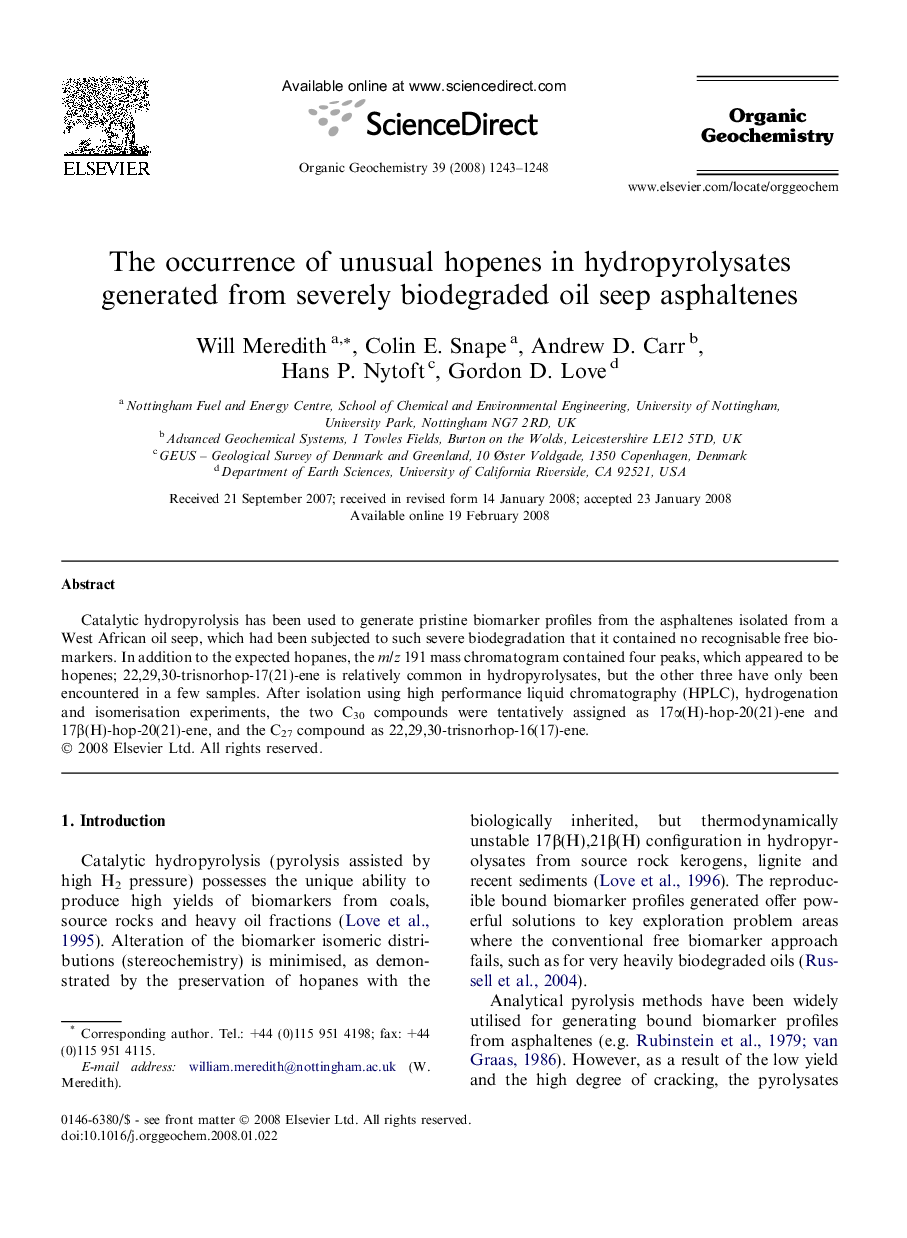| Article ID | Journal | Published Year | Pages | File Type |
|---|---|---|---|---|
| 5162030 | Organic Geochemistry | 2008 | 6 Pages |
Abstract
Catalytic hydropyrolysis has been used to generate pristine biomarker profiles from the asphaltenes isolated from a West African oil seep, which had been subjected to such severe biodegradation that it contained no recognisable free biomarkers. In addition to the expected hopanes, the m/z 191 mass chromatogram contained four peaks, which appeared to be hopenes; 22,29,30-trisnorhop-17(21)-ene is relatively common in hydropyrolysates, but the other three have only been encountered in a few samples. After isolation using high performance liquid chromatography (HPLC), hydrogenation and isomerisation experiments, the two C30 compounds were tentatively assigned as 17α(H)-hop-20(21)-ene and 17β(H)-hop-20(21)-ene, and the C27 compound as 22,29,30-trisnorhop-16(17)-ene.
Related Topics
Physical Sciences and Engineering
Chemistry
Organic Chemistry
Authors
Will Meredith, Colin E. Snape, Andrew D. Carr, Hans P. Nytoft, Gordon D. Love,
